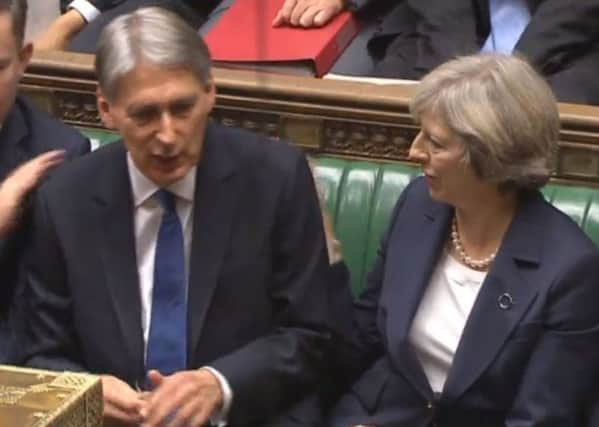The Autumn Statement: What does it mean for Portsmouth and Hampshire?


In a pledge to ‘get Britain moving again’ and provide a much-needed boost to workers and employers – chancellor Philip Hammond vowed to allocate Local Enterprise Partnerships in the south £683m to spend revamping heavily congested roads and motorways.
It’s all part of a strategy to ensure no obstacles are in the way of boosting productivity post-Brexit so Britain can be a big player on the global industrial stage.
Advertisement
Hide AdAdvertisement
Hide AdBut what that means exactly for the south – and specifically Hampshire – remains to be seen.
Much was said about strengthening the ‘northern powerhouse’ and encouraging further devolution of powers so local leaders can spend Whitehall money on the infrastructure improvements they think are fit.
Little was said of whether Hampshire’s big projects – the Stubbington bypass, smart motorways, the Solent combined authority deal – will come to fruition.
But there was relief in other areas, as fuel duty remains frozen for the seventh year running, beer duty was protected and letting agency fees on tenants are to be scrapped, to the delight of many.
Advertisement
Hide AdAdvertisement
Hide AdAnd the hard-up can breathe a sigh of relief as a pledge was made no more welfare cuts would be imposed in this parliament.
Business leaders say a lot remains up in the air, while supporters say Hammond’s stance provides confidence the economy is strong.
Stewart Dunn, Hampshire Chamber of Commerce’s chief executive, said: ‘While we of course welcome support on these essential activities, the main focus yet again was on investment in the north.
‘There were no specific announcements about the individual local enterprise partnerships in our region and nothing on greater devolution of power.
Advertisement
Hide AdAdvertisement
Hide Ad‘Many of our members will have been disappointed that the Chancellor did not address more of the upfront taxes facing businesses. His references to corporation tax, fuel duty and business rates were not new announcements.
‘In fact, under revaluation, some business rates in towns and cities in Hampshire will be going up despite his rhetoric.’
Hampshire’s MPs were largely pleased with the details. Portsmouth South MP Flick Drummond said: ‘Today’s statement from the Chancellor recognised we must do more to ensure we live within our means but, at the same time, we must offer effective measures to help hard-working families and to promote investment and business across the UK.
‘I had written privately to the Prime Minister last week, along with several colleagues, asking for greater taper relief to be applied to Universal Credit, and I’m very thrilled she passed these concerns on to the Chancellor and action has been taken to help around 3m households.
Advertisement
Hide AdAdvertisement
Hide Ad‘Similarly, the fuel duty freeze will benefit millions of people, saving the average motorist £130 a year, and the Living Wage rise to £7.50 an hour for over 24s is something that will benefit many too.’
Havant MP Alan Mak said: ‘The Autumn Statement is good news for Havant and the country, and delivers more economic security for working people by boosting wages and raising productivity. Increases in the tax-free personal allowance and the rising National Living Wage will help every working person across Havant, whilst investment in broadband and infrastructure will help every household and business.
‘Britain is the fastest-growing major developed economy this year, and today’s statement puts us on a strong footing as we head into 2017 and prepare for Brexit.’